
Beverly Hills Walking Tour (Self Guided), Los Angeles
Undeniably one of the most famous places in the world, Beverly Hills is widely known as the most fashionable destination in Los Angeles county to shop and have fun at. Originally a Mexican ranch where lima beans were once grown, this place has long been a home to many Hollywood stars and other celebrities, luxurious hotels, and high-end boutiques.
Beverly Hills started to gain prominence in the early 20th century when the likes of Douglas Fairbanks, Mary Pickford and other movie stars built their mansions here. The glamour associated with them largely contributed to the area's growing appeal.
In the early 1930s, Santa Monica Park was renamed Beverly Gardens and was extended to span the entire two-mile (3-kilometer) length of Santa Monica Boulevard through the city. The expansive Park features an illuminated Beverly Hills sign. The Electric Fountain marks the corner of Santa Monica Blvd. and Wilshire Blvd. with a small sculpture at the top of a Tongva kneeling in prayer.
In April 1931, the new Italian Renaissance-style Beverly Hills City Hall was opened.
Presently, Beverly Hills often appears in popular culture as a place of conspicuous wealth or luxury, manifested in the landmarks such as the Beverly Hills Hotel and upscale Rodeo Drive.
Still, apart from indulging in world-renowned shopping or trying to catch a glimpse of a celebrity, there are many more interesting things and places in Beverly Hills worth checking out. If you wish to explore the town's unique lifestyle and setting, take this self-guided walk.
Beverly Hills started to gain prominence in the early 20th century when the likes of Douglas Fairbanks, Mary Pickford and other movie stars built their mansions here. The glamour associated with them largely contributed to the area's growing appeal.
In the early 1930s, Santa Monica Park was renamed Beverly Gardens and was extended to span the entire two-mile (3-kilometer) length of Santa Monica Boulevard through the city. The expansive Park features an illuminated Beverly Hills sign. The Electric Fountain marks the corner of Santa Monica Blvd. and Wilshire Blvd. with a small sculpture at the top of a Tongva kneeling in prayer.
In April 1931, the new Italian Renaissance-style Beverly Hills City Hall was opened.
Presently, Beverly Hills often appears in popular culture as a place of conspicuous wealth or luxury, manifested in the landmarks such as the Beverly Hills Hotel and upscale Rodeo Drive.
Still, apart from indulging in world-renowned shopping or trying to catch a glimpse of a celebrity, there are many more interesting things and places in Beverly Hills worth checking out. If you wish to explore the town's unique lifestyle and setting, take this self-guided walk.
How it works: Download the app "GPSmyCity: Walks in 1K+ Cities" from Apple App Store or Google Play Store to your mobile phone or tablet. The app turns your mobile device into a personal tour guide and its built-in GPS navigation functions guide you from one tour stop to next. The app works offline, so no data plan is needed when traveling abroad.
Beverly Hills Walking Tour Map






Guide Name: Beverly Hills Walking Tour
Guide Location: USA » Los Angeles (See other walking tours in Los Angeles)
Guide Type: Self-guided Walking Tour (Sightseeing)
# of Attractions: 8
Tour Duration: 2 Hour(s)
Travel Distance: 2.7 Km or 1.7 Miles
Author: ashley
Sight(s) Featured in This Guide:
Guide Location: USA » Los Angeles (See other walking tours in Los Angeles)
Guide Type: Self-guided Walking Tour (Sightseeing)
# of Attractions: 8
Tour Duration: 2 Hour(s)
Travel Distance: 2.7 Km or 1.7 Miles
Author: ashley
Sight(s) Featured in This Guide:
- Beverly Hills City Hall
- Wallis Annenberg Center for the Performing Arts
- Beverly Gardens Park
- Church of the Good Shepherd
- Spadena House (The Witch’s House)
- Gagosian Gallery
- Rodeo Drive
- Anderton Court Shops
1) Beverly Hills City Hall
Beverly Hills City Hall serves as the headquarters for the city's administration. It houses the Mayor's office and hosts meetings of the Beverly Hills City Council. The architecture of the building is influenced by the California Churrigueresque style, which is a type of Spanish Revival architecture. It was designed by architects William J. Gage and Harry G. Koerner and was constructed between 1931 and 1932. When it was inaugurated in 1932, The Los Angeles Times referred to it as the "largest and most expensive City Hall of any municipality its size in the country."
In 1982, the City Hall underwent a renovation that expanded its size from 49,000 to 67,000 square feet. Another renovation in 2008 focused on the ground-floor reception area and relocated the main entrance from North Crescent Drive to North Rexford Drive.
The building has made appearances in various Hollywood movies, including "In a Lonely Place" directed by Nicholas Ray in 1950 and "Beverly Hills Cop" directed by Martin Brest in 1984.
In May 2013, the Beverly Hills City Council decided to include it on its list of historical preservation sites.
As part of the Beverly Hills Centennial Arts of Palm Installation, sculptor Brad Howe designed four sculptures outside City Hall, which The Beverly Hills Courier described as "the largest short-term public art installation ever to be held in Beverly Hills."
Furthermore, the Beverly Hills City Hall is home to the Municipal Gallery, an ever-changing art space designed by interior designer Gere Kavanaugh. Among the notable artifacts housed here is a sculpture by Auguste Rodin titled "Torso of a Walking Man."
In 1982, the City Hall underwent a renovation that expanded its size from 49,000 to 67,000 square feet. Another renovation in 2008 focused on the ground-floor reception area and relocated the main entrance from North Crescent Drive to North Rexford Drive.
The building has made appearances in various Hollywood movies, including "In a Lonely Place" directed by Nicholas Ray in 1950 and "Beverly Hills Cop" directed by Martin Brest in 1984.
In May 2013, the Beverly Hills City Council decided to include it on its list of historical preservation sites.
As part of the Beverly Hills Centennial Arts of Palm Installation, sculptor Brad Howe designed four sculptures outside City Hall, which The Beverly Hills Courier described as "the largest short-term public art installation ever to be held in Beverly Hills."
Furthermore, the Beverly Hills City Hall is home to the Municipal Gallery, an ever-changing art space designed by interior designer Gere Kavanaugh. Among the notable artifacts housed here is a sculpture by Auguste Rodin titled "Torso of a Walking Man."
2) Wallis Annenberg Center for the Performing Arts
The Wallis Annenberg Center for the Performing Arts is a cultural hub located in Beverly Hills. It's named after the generous philanthropist Wallis Annenberg, who made a significant contribution through The Annenberg Foundation to support the center's development. Informally, it's often referred to as simply "The Wallis."
The center's architectural design was crafted by Zoltan Pali from SPF Architects, and encompasses several key elements. These include the preservation of the historic 1933 Beverly Hills post office, the construction of a brand-new 500-seat Goldsmith Theater, the addition of a 150-seat Lovelace Studio Theater, and the inclusion of GRoW at The Wallis, a dedicated space for arts education. Additionally, the center features a sculpture garden and a promenade terrace designed by Ron Lutsko.
The creation of The Wallis was made possible through a $25 million donation from Wallis Annenberg herself. The construction process spanned a decade and is estimated to have cost approximately $70 million. Its annual operational expenses run into several million dollars.
The Wallis officially opened on October 17, 2013, with a black-tie gala co-chaired by Wallis Annenberg and Jamie Tisch. The program included Kevin Spacey, John Lithgow, and Diane Lane reading letters from historical figures like Groucho Marx and Tennessee Williams. Salvatore Ferragamo hosted a fashion show, and there were performances by Vittorio Grigolo and members of the Paris Opera Ballet.
The center's architectural design was crafted by Zoltan Pali from SPF Architects, and encompasses several key elements. These include the preservation of the historic 1933 Beverly Hills post office, the construction of a brand-new 500-seat Goldsmith Theater, the addition of a 150-seat Lovelace Studio Theater, and the inclusion of GRoW at The Wallis, a dedicated space for arts education. Additionally, the center features a sculpture garden and a promenade terrace designed by Ron Lutsko.
The creation of The Wallis was made possible through a $25 million donation from Wallis Annenberg herself. The construction process spanned a decade and is estimated to have cost approximately $70 million. Its annual operational expenses run into several million dollars.
The Wallis officially opened on October 17, 2013, with a black-tie gala co-chaired by Wallis Annenberg and Jamie Tisch. The program included Kevin Spacey, John Lithgow, and Diane Lane reading letters from historical figures like Groucho Marx and Tennessee Williams. Salvatore Ferragamo hosted a fashion show, and there were performances by Vittorio Grigolo and members of the Paris Opera Ballet.
3) Beverly Gardens Park
Beverly Gardens Park, spanning a length of 22 city blocks, runs alongside Santa Monica Boulevard in Beverly Hills, covering a distance of 1.9 miles (3.1 kilometers). This beautiful park was designed by the renowned landscape architect, Ralph D. Cornell.
The park serves as a lush green buffer zone between the residential neighborhoods to the north and the commercial districts of the city. It offers a two-mile jogging trail, features numerous centuries-old cypress and ficus trees, boasts various gardens and sculptures, and is home to the iconic Beverly Hills Sign – a recreation of the original historic sign that once graced the city's center.
Within the park, you'll find a permanent collection of public art, including the Electric Fountain situated at the far western end where Santa Monica and Wilshire Boulevards intersect. Close to Rodeo Drive, there's a sculpture titled "Hymn to Life," crafted by Yayoi Kusama, featuring psychedelic tulips. This piece was sculpted and produced by Mat McKim and Nick Petronzio in the art department at Ironwood.
In addition to these contemporary artworks, the park showcases public art by notable sculptors such as Barry Flanagan, Tony Smith, and Magdalena Abramovicz, strategically placed around the grounds near Beverly Hills City Hall. Furthermore, historical fountains, arbors, and specialty gardens dedicated to roses, cacti, succulents, and palms adorn the north side of Santa Monica Boulevard, extending from Doheny Drive to Whittier Drive, visible to both motorists and pedestrians.
The park serves as a lush green buffer zone between the residential neighborhoods to the north and the commercial districts of the city. It offers a two-mile jogging trail, features numerous centuries-old cypress and ficus trees, boasts various gardens and sculptures, and is home to the iconic Beverly Hills Sign – a recreation of the original historic sign that once graced the city's center.
Within the park, you'll find a permanent collection of public art, including the Electric Fountain situated at the far western end where Santa Monica and Wilshire Boulevards intersect. Close to Rodeo Drive, there's a sculpture titled "Hymn to Life," crafted by Yayoi Kusama, featuring psychedelic tulips. This piece was sculpted and produced by Mat McKim and Nick Petronzio in the art department at Ironwood.
In addition to these contemporary artworks, the park showcases public art by notable sculptors such as Barry Flanagan, Tony Smith, and Magdalena Abramovicz, strategically placed around the grounds near Beverly Hills City Hall. Furthermore, historical fountains, arbors, and specialty gardens dedicated to roses, cacti, succulents, and palms adorn the north side of Santa Monica Boulevard, extending from Doheny Drive to Whittier Drive, visible to both motorists and pedestrians.
4) Church of the Good Shepherd
The Church of the Good Shepherd on North Bedford drive in Beverly Hills is a truly enchanting small Catholic temple.
Consecrated in 1924, this lovely church, which houses 600 worshippers, is the oldest in Beverly Hills and has been the local Parish church for many Hollywood stars, including Bing Crosby and Rudolph Valentino. It has also held funeral services for people such as Alfred Hitchcock, Gary Cooper and Frank Sinatra. On a more joyful note, it has also celebrated the wedding of Elizabeth Taylor to Conrad Hilton and Mark Wahlberg to Rhea Durham, among many others.
The elegant building has a Spanish Colonial Revival facade, with white walls and terracotta roof tiles. It has two graceful spires topped with golden domes and many beautiful stained-glass windows. The three front entrances feature carved wooden doors set in archways, with a short flight of shallow steps leading up to the entrance. The church stands in well-tended gardens, with green lawns, cedar trees and cacti. There is a statue of Jesus Christ holding a lamb in front of the building.
The interior of the church is as lovely as the exterior, but quite simple with its double row of dark wooden pews and two small side chapels. Its many windows give the interior a light, airy atmosphere.
Consecrated in 1924, this lovely church, which houses 600 worshippers, is the oldest in Beverly Hills and has been the local Parish church for many Hollywood stars, including Bing Crosby and Rudolph Valentino. It has also held funeral services for people such as Alfred Hitchcock, Gary Cooper and Frank Sinatra. On a more joyful note, it has also celebrated the wedding of Elizabeth Taylor to Conrad Hilton and Mark Wahlberg to Rhea Durham, among many others.
The elegant building has a Spanish Colonial Revival facade, with white walls and terracotta roof tiles. It has two graceful spires topped with golden domes and many beautiful stained-glass windows. The three front entrances feature carved wooden doors set in archways, with a short flight of shallow steps leading up to the entrance. The church stands in well-tended gardens, with green lawns, cedar trees and cacti. There is a statue of Jesus Christ holding a lamb in front of the building.
The interior of the church is as lovely as the exterior, but quite simple with its double row of dark wooden pews and two small side chapels. Its many windows give the interior a light, airy atmosphere.
5) Spadena House (The Witch’s House)
The Spadena House, also referred to as The Witch's House, stands as a distinctive storybook-style residence located in Beverly Hills. Its notable feature is its deliberately whimsical and aged design, making it a prominent landmark featured on local tours. Originally, the Spadena family, who were the initial occupants of this 3,500-square-foot (330 square meters) home, gave it their name.
The house's design can be attributed to Hollywood art director Harry Oliver, who had a prolific career spanning over 30 films from 1919 to 1938, serving as an art director and set decorator. He later played a significant role in the development of Storybook architecture. Initially constructed in 1921, the house served as offices and dressing rooms for Irvin Willat's film studio in Culver City. It was later relocated to its present site in 1926. This converted private residence boasts a distinctive look, featuring a sharply pitched, asymmetric roof, small windows, and stucco with a deliberately distressed paint finish, all surrounded by a meticulously overgrown English-style garden and a pond resembling a moat.
Architect Charles Willard Moore once described this building as the quintessential Hansel and Gretel house, evoking a fairytale charm. Additionally, the house has made appearances in several films, including the 1995 movie "Clueless."
The house's design can be attributed to Hollywood art director Harry Oliver, who had a prolific career spanning over 30 films from 1919 to 1938, serving as an art director and set decorator. He later played a significant role in the development of Storybook architecture. Initially constructed in 1921, the house served as offices and dressing rooms for Irvin Willat's film studio in Culver City. It was later relocated to its present site in 1926. This converted private residence boasts a distinctive look, featuring a sharply pitched, asymmetric roof, small windows, and stucco with a deliberately distressed paint finish, all surrounded by a meticulously overgrown English-style garden and a pond resembling a moat.
Architect Charles Willard Moore once described this building as the quintessential Hansel and Gretel house, evoking a fairytale charm. Additionally, the house has made appearances in several films, including the 1995 movie "Clueless."
6) Gagosian Gallery
Gagosian is a contemporary art gallery owned and directed by the Armenian-American art dealer, Larry Gagosian, who developed a reputation for staging museum-quality exhibitions of contemporary art. Born in Los Angeles, Gagosian opened his first galleries on Almont Drive and Robertson Boulevard in the early 1980s. Gagosian Beverly Hills, designed by acclaimed American architect Richard Meier, opened its doors for the first time in 1995 with new sculptures by Frank Stella, and later mounted exhibitions by Edward Ruscha, Nan Goldin, Frank Gehry, Jeff Koons and Richard Prince.
One of the leading contemporary galleries, it has showed modern artists such as Pablo Picasso, Roy Lichtenstein and Abstract Expressionism group exhibitions, as well as all the most influential artists of the 20th and 21st centuries including Andy Warhol, Gregory Crewdson, Taryn Simon, Tom Sachs and others.
In 2010, the expansion of the Beverly Hills gallery into the next-door building to create a second light-filled space of equal scale — again designed by Meier — enabled even more ambitious programming, with major exhibitions by Urs Fischer, Andreas Gursky, Jeff Koons, Giuseppe Penone, Richard Prince, Ed Ruscha, Richard Serra, and Taryn Simon, among others.
At Gagosian’s much-anticipated “Oscar shows,” an annual fixture in the Los Angeles cultural calendar, the art, film, and celebrity communities rub shoulders prior to the Academy Awards ceremony.
One of the leading contemporary galleries, it has showed modern artists such as Pablo Picasso, Roy Lichtenstein and Abstract Expressionism group exhibitions, as well as all the most influential artists of the 20th and 21st centuries including Andy Warhol, Gregory Crewdson, Taryn Simon, Tom Sachs and others.
In 2010, the expansion of the Beverly Hills gallery into the next-door building to create a second light-filled space of equal scale — again designed by Meier — enabled even more ambitious programming, with major exhibitions by Urs Fischer, Andreas Gursky, Jeff Koons, Giuseppe Penone, Richard Prince, Ed Ruscha, Richard Serra, and Taryn Simon, among others.
At Gagosian’s much-anticipated “Oscar shows,” an annual fixture in the Los Angeles cultural calendar, the art, film, and celebrity communities rub shoulders prior to the Academy Awards ceremony.
7) Rodeo Drive (must see)
Rodeo Drive is a famous two-mile-long (3.2 kilometers) street located in the heart of Beverly Hills. This name is commonly used to refer to a specific three-block section situated between Wilshire Boulevard and Little Santa Monica Boulevard, known as the Golden Triangle. This area is renowned for its concentration of over 100 luxury boutiques and hotels.
At the southern end of Rodeo Drive, near Wilshire Boulevard, you'll find one of Beverly Hills' oldest and most luxurious hotels, the Beverly Wilshire, A Four Seasons Hotel, which was constructed in 1928. It's often affectionately referred to as the "Pretty Woman hotel" because it served as the backdrop for exterior scenes in the classic movie starring Richard Gere and Julia Roberts.
Just across the street from the Beverly Wilshire is Two Rodeo Drive, a European-style shopping center that features a charming cobblestone walkway, street lamps, and beautiful floral displays. Here, you can find famous brands like Versace, Jimmy Choo, Lanvin, and Tiffany & Company, along with two notable restaurants: 208 Rodeo Restaurant and Urasawa, which is one of the most expensive sushi restaurants in the United States.
Similar to the Hollywood Walk of Fame, there is also a fashion-oriented version called the Rodeo Drive Walk of Style®. It honors fashion icons such as Fred Hayman, Tom Ford, Giorgio Armani, Princess Grace of Monaco, Salvatore Ferragamo, Gianni and Donatella Versace, and Manolo Blahnik.
Another must-see attraction on Rodeo Drive is the yellow Rolls-Royce, a custom-made Phantom Drophead Coupe owned by Bijan Pakzad of the House of Bijan. The House of Bijan is one of Rodeo Drive's most exclusive men's stores, operating by appointment only and catering to celebrities, athletes, royalty, dignitaries, and even the last four U.S. Presidents. This Rolls-Royce is permanently parked on the street, complete with a matching yellow parking meter and sidewalk plaques featuring House of Bijan’s logos. It draws hundreds of tourists daily who come to take photos of this iconic spot.
Why You Should Visit:
A classic landmark where the wealthy and famous spend their time in L.A.
An iconic place with plenty of shops and cafes.
The super glamorous Rodeo Drive sets a beautiful backdrop for a nice afternoon walk, plus a great place to take some pretty pictures of Beverly Hills.
Tip:
While it’s not a great place for an average person to shop at, people watching is quite fun here. You’re going to see it all, from those not caring at all to those trying way too hard to impress others.
At the southern end of Rodeo Drive, near Wilshire Boulevard, you'll find one of Beverly Hills' oldest and most luxurious hotels, the Beverly Wilshire, A Four Seasons Hotel, which was constructed in 1928. It's often affectionately referred to as the "Pretty Woman hotel" because it served as the backdrop for exterior scenes in the classic movie starring Richard Gere and Julia Roberts.
Just across the street from the Beverly Wilshire is Two Rodeo Drive, a European-style shopping center that features a charming cobblestone walkway, street lamps, and beautiful floral displays. Here, you can find famous brands like Versace, Jimmy Choo, Lanvin, and Tiffany & Company, along with two notable restaurants: 208 Rodeo Restaurant and Urasawa, which is one of the most expensive sushi restaurants in the United States.
Similar to the Hollywood Walk of Fame, there is also a fashion-oriented version called the Rodeo Drive Walk of Style®. It honors fashion icons such as Fred Hayman, Tom Ford, Giorgio Armani, Princess Grace of Monaco, Salvatore Ferragamo, Gianni and Donatella Versace, and Manolo Blahnik.
Another must-see attraction on Rodeo Drive is the yellow Rolls-Royce, a custom-made Phantom Drophead Coupe owned by Bijan Pakzad of the House of Bijan. The House of Bijan is one of Rodeo Drive's most exclusive men's stores, operating by appointment only and catering to celebrities, athletes, royalty, dignitaries, and even the last four U.S. Presidents. This Rolls-Royce is permanently parked on the street, complete with a matching yellow parking meter and sidewalk plaques featuring House of Bijan’s logos. It draws hundreds of tourists daily who come to take photos of this iconic spot.
Why You Should Visit:
A classic landmark where the wealthy and famous spend their time in L.A.
An iconic place with plenty of shops and cafes.
The super glamorous Rodeo Drive sets a beautiful backdrop for a nice afternoon walk, plus a great place to take some pretty pictures of Beverly Hills.
Tip:
While it’s not a great place for an average person to shop at, people watching is quite fun here. You’re going to see it all, from those not caring at all to those trying way too hard to impress others.
8) Anderton Court Shops
The Anderton Court Shops, constructed in 1952, stand as a cluster of three-story boutiques situated along the fashionable Rodeo Drive. This architectural gem is significant in Los Angeles as it represents the final work of the renowned architect Frank Lloyd Wright.
To access these shops, visitors ascend an inclined ramp that winds around an open parallelogram. This unique design element adds a touch of distinction as it guides patrons upwards toward the shops. Originally, four shops were envisioned, along with a penthouse apartment. Similar to Wright's design for the Marin Civic Center, this building also features an unconventional "steeple" design, seen in its inverted “V” front elevation, which sharply contrasts with the flat-fronted buildings typical of the urban landscape.
Over time, the Anderton Court Center has undergone alterations. It now comprises six smaller shops, three on each side, with each shop staggered a half-floor from its neighbor, all connected by the distinctive ramp. The building's facade has evolved from its original light buff with oxidized-copper-color trim to a white exterior with black accents. Furthermore, the current canopy and signage are modern additions that deviate from Wright's original design.
It is noteworthy that the Anderton Court Shops hold a place of historical significance, being listed on the National Register of Historic Places.
To access these shops, visitors ascend an inclined ramp that winds around an open parallelogram. This unique design element adds a touch of distinction as it guides patrons upwards toward the shops. Originally, four shops were envisioned, along with a penthouse apartment. Similar to Wright's design for the Marin Civic Center, this building also features an unconventional "steeple" design, seen in its inverted “V” front elevation, which sharply contrasts with the flat-fronted buildings typical of the urban landscape.
Over time, the Anderton Court Center has undergone alterations. It now comprises six smaller shops, three on each side, with each shop staggered a half-floor from its neighbor, all connected by the distinctive ramp. The building's facade has evolved from its original light buff with oxidized-copper-color trim to a white exterior with black accents. Furthermore, the current canopy and signage are modern additions that deviate from Wright's original design.
It is noteworthy that the Anderton Court Shops hold a place of historical significance, being listed on the National Register of Historic Places.
Walking Tours in Los Angeles, California
Create Your Own Walk in Los Angeles
Creating your own self-guided walk in Los Angeles is easy and fun. Choose the city attractions that you want to see and a walk route map will be created just for you. You can even set your hotel as the start point of the walk.
Downtown Architecture Walking Tour
For different people, Los Angeles means different things. One such is undoubtedly architecture. Being one of the centers of the Art Deco movement, LA features a great number of amazing historic houses and buildings attributed to this and other, older and more modern styles.
One prominent landmark is the Cathedral of Our Lady of the Angels, a contemporary construction masterpiece with its... view more
Tour Duration: 2 Hour(s)
Travel Distance: 2.6 Km or 1.6 Miles
One prominent landmark is the Cathedral of Our Lady of the Angels, a contemporary construction masterpiece with its... view more
Tour Duration: 2 Hour(s)
Travel Distance: 2.6 Km or 1.6 Miles
Los Angeles Downtown Walking Tour
The history of Los Angeles – "a bright and guilty place," as Orson Welles described it – began on September 4, 1781, when a group of 44 Spanish settlers established a hamlet on the territory of present-day Downtown LA which they called “The Town of Our Lady the Queen of the Angels” (El Pueblo de Nuestra Señora la Reina de los Ángeles).
The land became part of Mexico in 1821,... view more
Tour Duration: 2 Hour(s)
Travel Distance: 3.5 Km or 2.2 Miles
The land became part of Mexico in 1821,... view more
Tour Duration: 2 Hour(s)
Travel Distance: 3.5 Km or 2.2 Miles
Movie Studios Tour
The film studios of Los Angeles, collectively known as the “dream factory”, are indeed factories. Here, countless iconic films and television shows have been produced over the years, creating stars and attracting great movie-makers from around the globe. Let's take a brief look at some of these vital hubs in the entertainment industry.
Raleigh Studios is one of the oldest continuously... view more
Tour Duration: 2 Hour(s)
Travel Distance: 3.9 Km or 2.4 Miles
Raleigh Studios is one of the oldest continuously... view more
Tour Duration: 2 Hour(s)
Travel Distance: 3.9 Km or 2.4 Miles
Arts District Walking Tour
The Arts District is one of the hottest neighborhoods in downtown LA, located between Little Tokyo at Alameda to the west and the railroad yards and Los Angeles River to the east. Formerly an industrial area of warehouses and factories, it has been home to art studios and galleries since the 1970s. Having undergone another downturn in the 1990s, the area was officially renamed the “Arts... view more
Tour Duration: 2 Hour(s)
Travel Distance: 2.8 Km or 1.7 Miles
Tour Duration: 2 Hour(s)
Travel Distance: 2.8 Km or 1.7 Miles
Chinatown Walking Tour
Unlike other cities where Chinese immigrant neighborhoods were formed organically, the Los Angeles Chinatown is the only planned Chinatown in the US. A blend of Chinese and American architecture, it was developed in downtown LA, as a tourist attraction, in the 1930s.
Designed by Hollywood artists as a "Chinese" movie prop to create an exotic atmosphere, LA's Chinatown gives out... view more
Tour Duration: 1 Hour(s)
Travel Distance: 1.7 Km or 1.1 Miles
Designed by Hollywood artists as a "Chinese" movie prop to create an exotic atmosphere, LA's Chinatown gives out... view more
Tour Duration: 1 Hour(s)
Travel Distance: 1.7 Km or 1.1 Miles
El Pueblo and Little Tokyo Walk
El Pueblo and Little Tokyo are two culturally rich and historically significant neighborhoods in Los Angeles.
The former is the oldest district in the city. Also known as the birthplace of Los Angeles, El Pueblo is centered around the Los Angeles Plaza. Throughout most of the 19th century, it was the city's administrative and commercial center: first under the Spanish (from 1781 to 1821),... view more
Tour Duration: 2 Hour(s)
Travel Distance: 2.2 Km or 1.4 Miles
The former is the oldest district in the city. Also known as the birthplace of Los Angeles, El Pueblo is centered around the Los Angeles Plaza. Throughout most of the 19th century, it was the city's administrative and commercial center: first under the Spanish (from 1781 to 1821),... view more
Tour Duration: 2 Hour(s)
Travel Distance: 2.2 Km or 1.4 Miles
Useful Travel Guides for Planning Your Trip
Los Angeles: 15 Souvenir Shopping Tips and Ideas for Travelers
With some many celebrities per square mile, living or just visiting, practically any stone in LA could pass for a souvenir that one time or another was touched, held or walked upon by some of the movie or rock stars, or was filmed in one of the many movies shot in the City of Angels for almost a...
15 Charming Cafes with Fast and Free Wifi in Los Angeles
Need to find free wireless connection AND a great cup of coffee? These charming cafes, hot-spots and writers’ hang-outs are scattered across LA but catalogued by neighborhood. These indie cafes cater to screenwriters, students and tourists who want to set up camp with their laptops for a few hours...
10 Amazing Food to Try in Los Angeles (LA)
I love food. You love food too. And because we’re foodies, we want every meal to be as good as if it were our last. So for those few times us foodies sit at a table and unexpectedly strike gold, we must remember, honor and share that memorable meal. Here is a list of affordable LA area culinary...
The Most Popular Cities
/ view all
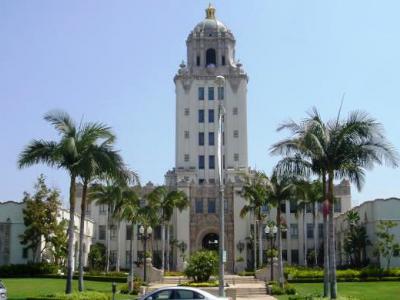
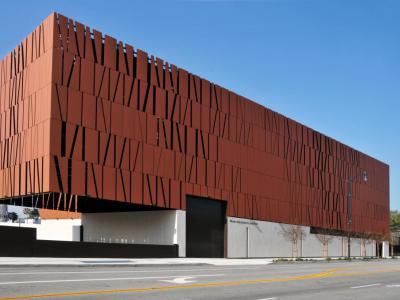

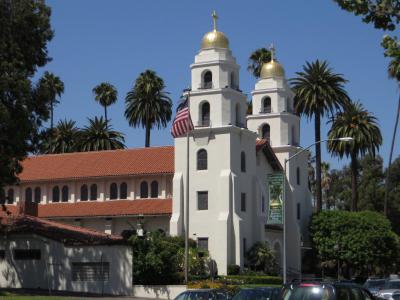

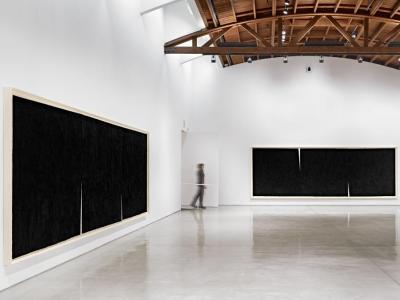
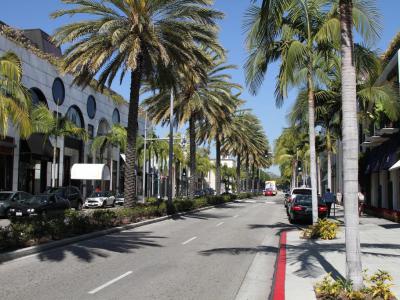






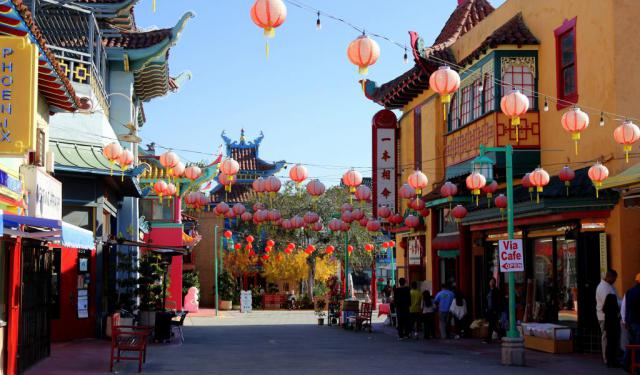



.jpg)